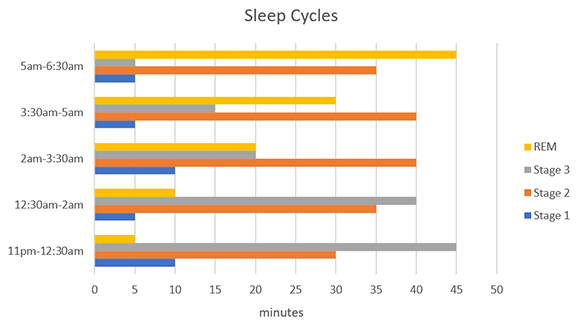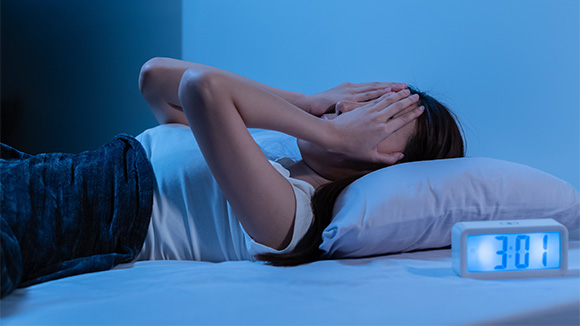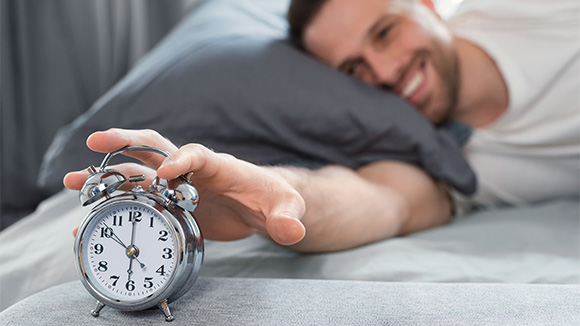Sleep is not only something many of us relish, but it is absolutely vital to our mental health. For this Piece of Mind Monday, Claudia dives deep into Sleep Time and the importance of a healthy, balanced sleep routine for a healthy, balanced mental health state.

Ahhh...sweet, blissful sleep. Don’t you agree? When we get a solid 8 hours of uninterrupted night's sleep, life is good. But, let’s be real - how many of us actually get that every night?
And what of the nuances of good sleep hygiene? Just like food, not all mental nutrients are created equal. Sleep accounts for one-third of our mental nutrients for the day. Additionally, not all sleep is the same, just as not all greens are the same: you will not get the same nutrients in iceberg lettuce that you would get in kale. Understanding the particulars of sleep in a short blog is impossible to do, but perhaps I can give you a better grasp of the importance of sleep.
Mental Health Services @ Coastline
A Sleep Primer
Good sleep is a predictor of mental resilience. Sleep is necessary for good health. Adults need 7-9 hours of sleep each night. Sleep is also cyclical. We cycle through distinct stages of sleep about every 90-120 minutes, with a total of 4-6 cycles per night. These cycles are broken down into four stages.

As you can see in the example of the sleep cycles in the graph above, you will note that Stage 3 and REM are significantly longer or shorter depending on the time of night. This gives us a bit more understanding about the nuances of sleep.

Why is this important?
To know why this is important, you must understand what happens in each stage of sleep.
Stage 1: Your body prepares to sleep or go back into deeper sleep.
Stage 2: Your heart rate and body temperature drop, which is needed for a healthy cardiovascular system. Metabolism and hormones are also regulated. Memory consolidation begins to happen. Memory consolidation includes our ability to know how to do things without having to think about them, i.e., "everyday" tasks like tying your shoes, typing, driving a car, etc. It also includes being able to recall facts, information, and experiences, i.e., remembering the last words my grandmother ever spoke to me or the facts I studied for my upcoming quiz.
Mental Health Awareness @ Coastline
Stage 3: The body repairs and regrows tissues, builds bone and muscle, and strengthens the immune system. The manufacturing of T-cells is greatest during restorative sleep. Memory consolidation continues. Deep sleep hits the “save button” on information.
REM: The brain sorts and filters connections that we have made during the day and keeps those that are useful. It is vital for memory, learning, and brain development (that’s why babies and children experience more REM sleep than adults). REM makes associations with the information we have saved in deep sleep.
Sleep is necessary to memory, learning, physical health, and brain development, among other things.

How can I improve my sleep hygiene?
If you have real concerns about your sleep and/or are experiencing sleep disturbance, or sleep solidly through the night but do not feel rested in the morning, consider having a sleep study done via your health practitioner. Below are tips that many have found helpful.

If you forget all these tips or they seem overwhelming, you need only remember this when it comes to sleep: Whatever you do to help children sleep works for adults too, apart from long naps. So, sleep like a baby tonight!
Claudia Vernon has been a Mental Health Therapist at Coastline since the department’s inception in January of 2019 and became Director of Student Mental Health Services in July of 2023. Claudia earned her B.A. in Social Work from Cal State University Long Beach and an M.A. in Social Work from Barry University, Florida with an emphasis in trauma-informed clinical practice. She has been practicing as a Licensed Clinical Social Worker (L.C.S.W.) for approximately 20 years. Claudia has also provided clinical supervision to countless graduate student interns and post graduate associates in the mental health field for over 15 years. To learn more about Claudia and Coastline's other Mental Health Therapists, visit the Student Mental Health Services webpage.